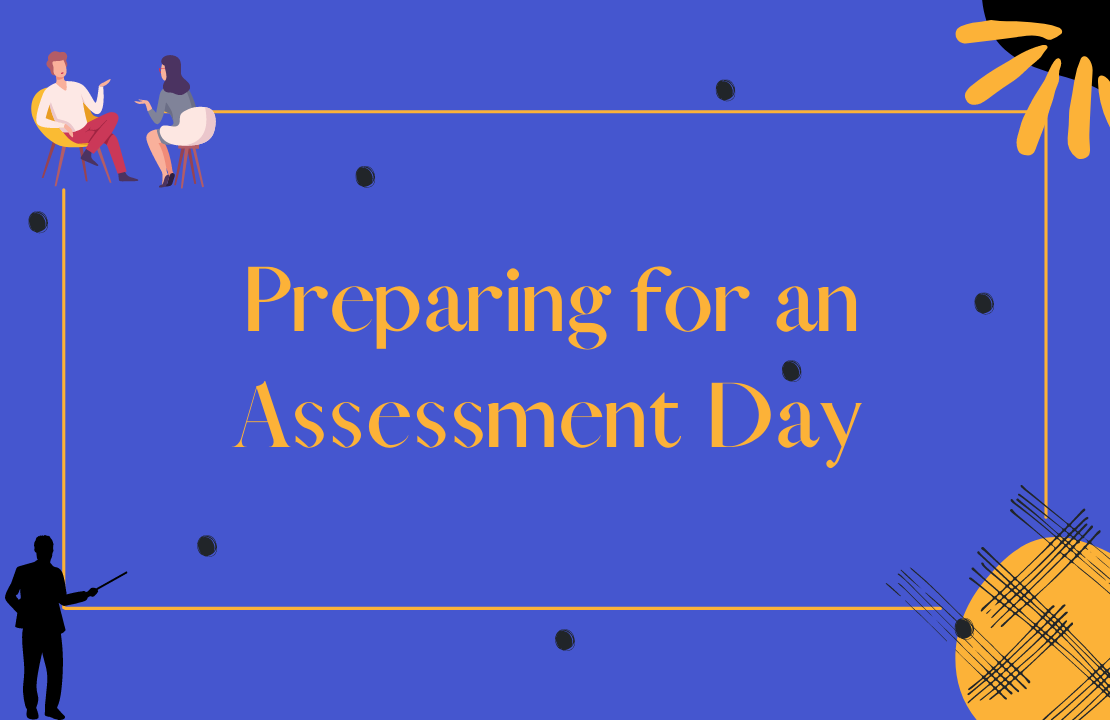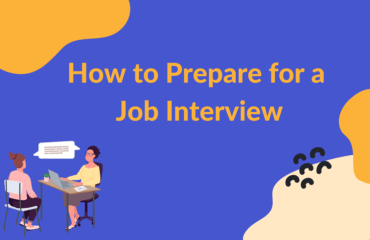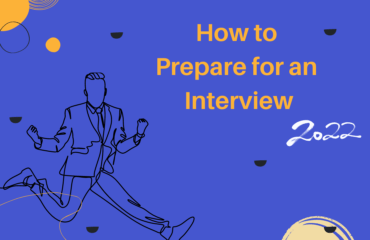Table of Contents
What is an assessment day?
An assessment day (or an assessment center) is a part of the recruitment process that is becoming progressively common. It involves employers subjecting candidates to a series of practical exercises, activities, tests, and interviews and observing them in action to select the most capable candidate. An assessment day provides participants with the opportunity to demonstrate their competencies and skills in practice, outside the regular interview format in recruitment. Candidates are evaluated on multiple factors depending on the position.
What to expect on an assessment day?
Assessment days can take place at an employer’s office, a training facility, or a hotel. Post-Covid, most companies hold online assessment days due to restrictions. Going forward, most of them are expected to follow a hybrid model, with a combination of online and offline events, in line with the restrictions. In this article, we will discuss assessment days and provide you with tips and tricks to help you prepare for one. Let’s start by understanding what a typical assessment day involves.
a. Group exercises
A group exercise is an activity based on job-related tasks, which involves candidates working in a team of 5 to 10. The exercise may include problem-solving tasks, working on case studies, a hands-on assignment, role-playing situations, leadership exercises, or brainstorming sessions. Skills that assessors typically look for include:
- Teamwork
- Communication skills
- Commercial awareness
- Body language
- Logical arguments
- Confidence
How to prepare: There is a lot of online material available on group exercises. We recommend looking for reliable websites like TargetJobs or Prospects to find preparatory material. Furthermore, perform group exercises with friends and family and ask someone to observe you throughout the process for feedback. Additionally, we suggest the following tips for group exercises:
- Your communication within the group is key and will be evaluated. Make sure you contribute to the conversation and not dominate it. Don’t be overbearing and don’t interrupt others. If you consider yourself to be shy, find opportunities to speak up. Be aware of your behavior and regulate it accordingly.
- Be polite but assertive when putting across your arguments. You should appear confident about yourself and your arguments. However, be careful not to appear arrogant, as this is a turn-off for employers.
- Keep an eye on the time and the progress of the group, summarizing the arguments from time to time to keep the group on track.
- Listen to others carefully and offer constructive feedback if needed. However, don’t go overboard, as you may be perceived as patronizing. Be aware of every group member’s contribution.
- Be diplomatic. If someone is overly dominant, make sure, politely and diplomatically, that everyone in the group gets a chance to contribute and speak their mind.
b. Interviews
On your assessment day, you should expect to sit for one or more interviews. These can be with a single interviewer or a panel. Some types of interviews that may be a part of the assessment center include:
In 2021, most offline interviews have migrated to online platforms so we recommend preparing for both formats. As a first step, read the invitation letter to the assessment center carefully or speak to the recruitment representative of the company to learn more about the type of interview/s. Next, let’s have a look at some criteria of assessment during an interview.
- Your communication skills, active listening, and responding is the key.
- Your strengths, competencies, or technical skills based on the type of interview.
- Your ability to relate your skills and background to the target job role.
- Your fit within the company.
- Critical thinking and problem-solving skills.
- Any risk factors that may implicate your fit or performance in the role and the company. You would also be judged on how you respond to such questions, as it reflects your ability to handle pressure and constructive criticism.
How to prepare: We suggest learning more about different types of interviews to know what you should expect. You can start with our guide on interviews, covering all about different types of interviews and how to prepare for them. Additionally, work with an interview prep partner on mock interviews. These will help you identify your areas of improvement and strengths, and work on them further to enhance them.
c. Presentations
You may have to give a presentation individually or as a part of your group exercise. The duration of the presentation may be between 5 and 10 minutes. You would either be given the subject in advance or on the assessment day. In the case of the former, you would be assessed on your:
- Oral communication
- Planning and organizing
- Body language
- Presence
- Quick Thinking
- Ability to handle pressure
Tips for preparing for presentation:
- Plan your presentation by analyzing your audience and accordingly define the objective of your presentation.
- Then prepare the body of the presentation. The content on the screen should not be overwhelming or underwhelming. It should hit the sweet spot of grabbing the attention of your audience but not burdening their senses.
- Prepare your speech for the presentation with a clear structure. Imagine yourself to be the storyteller of the images on the screen. Prepare your speech to guide the audience into the subject gradually and leave them with a clear message afterward.
- Use the space available to you. For an in-person presentation, this is the stage or the area of performance at the venue. For an online presentation, it is the tools that are provided in the virtual presentation software.
To learn more on how to give a great presentation, you can refer to these articles by Harvard Business Review and Forbes.
d. Roleplay
Here you will interact with a professional actor in a chosen scenario. For example, the actor may be an infuriated customer or a supplier who has been let down. The actor will often be briefed to push for a different outcome, and hence, the focus will be on how well you can negotiate and reach a ‘favorable to all’ solution. Role-plays let employers observe how you respond to tricky situations. The assessor compares your reactions and behavior against the standards and makes a decision accordingly. Skills and qualities that assessors look for include:
- Patience
- Ability to handle pressure
- Quick thinking under stress
- Conflict resolution
Tips to prepare for the role-play exercise:
- Try to speak with professionals already working in your target role.
- Speak to them about their daily activities and the difficult situations they face on the job
- Practice role-playing scenarios with friends.
- On the assessment day, be confident.
- You would be given a brief about the role and time to prepare for the role play, go through the scenario thoroughly, and plan your play accordingly. The brief usually contains key points to the exercise.
- Get into character before the play starts. Sometimes the scenarios may seem far-fetched and one may be tempted to not take them seriously, avoid this temptation. Take role-playing seriously no matter how serious or silly the scenario may seem.
e. In-tray exercises
An in-tray exercise is a questionnaire that can be computer-based or paper-based. During this assessment, the candidate is presented with a scenario which is followed by a set of questions based on it. Skills assessed during this exercise include:
- Decision-making
- How you interpret data and information
- Ability to communicate effectively
- Ability to establish priorities
Tips to prepare for in-tray assessment: Practice in-tray exercises online to improve your judgment of scenarios and information retention.
g. Tests and assessments
Even if you have been tested on aptitude and reasoning before in the hiring process, be prepared to take numerous tests and assessments on the day. For example, you may have to go through an Excel test on the assessment day. This could typically include a set of questions provided by the employer, along with a computer device to work on. They will specify a time range within which you will be required to complete the test. Some tests that you can expect include:
- Numerical ability
- Verbal ability
- Situational judgment test
- Personality questionnaire
- Inductive reasoning
- Logical reasoning
Tips to prepare: Practice as many online tests and questionnaires before the assessment day. You can refer to different online resources to practice tests.
Some general tips to prepare:
- Read the invitation again: Know what to expect- activities, schedule, required documents, and other things. Contact the recruiter in case of any queries.
- Do your research: Read about the company, its history, current news, and future plans. Read online about the role, responsibilities involved, and required competencies. Read the job description thoroughly, and also try to connect with company employees already in the job role.
- Read your application: Review your answers to the application submitted before the assessment day. Be prepared to explain your resume content.
- Plan ahead: Plan your day for the assessment center. If the event is in-person, find the address, make arrangements to get there, and leave early anticipating traffic.
- Leading up to the day: Empty your schedule for the day before and rest well. Practice a healthy regular sleeping schedule leading up to the day. Organize your days in a similar manner to the assessment day, so you are productive during the timings of the assessment day. Some light exercise may also help in regulating your schedule and keep you focused.
An assessment day can be challenging to prepare for. The pressure and anxiety of performing tasks in a competitive environment are common. As a candidate, the best you can do is to prepare well on your end. We suggest going through all types of activities mentioned above thoroughly and identifying the best ways to prepare for them. We strongly recommend seeking help from your friends, family, or professionals to support you through the process.











